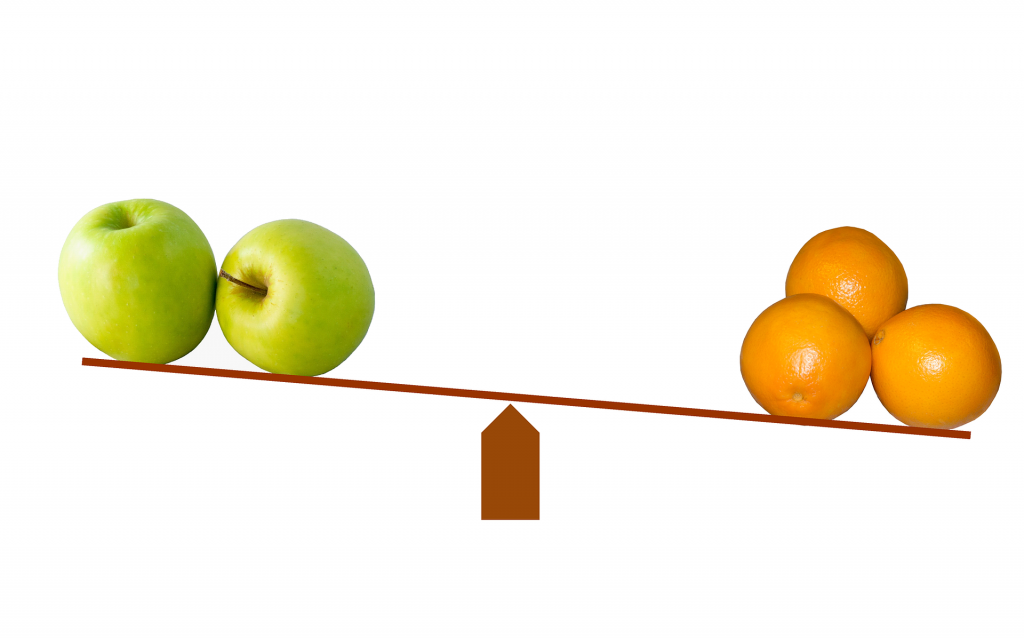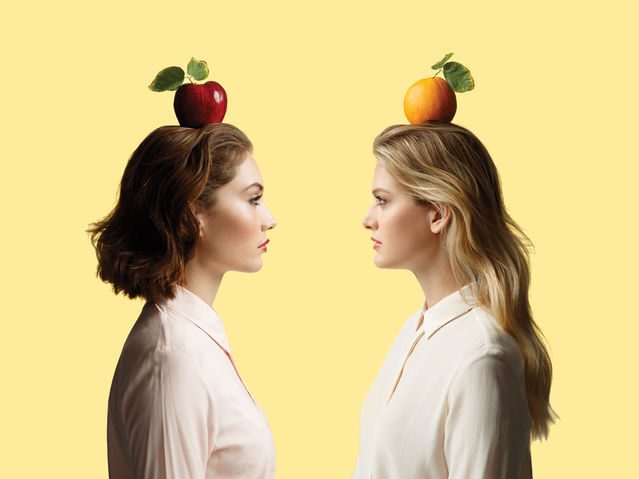I was listening to a recovery podcast the other day, and the guest had been sober for several years. He was talking about how important his daily routine is to his sobriety. When the host asked him what his schedule was, he started in on this long, exhaustive, daunting routine he does every single morning, without fail.
It was something to the effect of awaking up at an ungodly early time, then sobriety meditation for forty-five minutes, then running five miles, then mindfully showering, then a healthy organic green juice smoothie, then meal planning for the day – all before 8 a.m. The rest of his day sounded equally daunting, and made me want to just give up and go back to bed.
In addition to giving up alcohol, the man hasn’t had sugar in five years, he hasn’t ingested gluten for three years, he’s vegan, and he doesn’t eat processed foods. Holy Cow! What else is there? And how could I do all that so I’ll be like him? I can’t.
“Comparison is the thief of joy.” – Theodore Roosevelt
And that’s when I started feeling really down on myself. I would love to say I do something similar, but I don’t. I know I shouldn’t eat as much sugar as I do, and my overall diet isn’t really all that healthy, but I can’t seem to change it at the moment.
And I know successful go-getters are up at the crack of dawn saving the world, but I hit the snooze button three times this morning. Sometimes I exercise and sometimes I don’t.
So, when I hear sober people like this guy, why does it make me feel worse about myself? I’m sober. Shouldn’t I be feeling good about myself because I achieved that?

I never seem to measure up.
I’ve been doing the comparison thing my whole life about everything from my physical appearance, to my college Grade Point Average, to how much money I make, to the success of my children. And it always leaves me feeling inferior and often envious.
It’s not that I don’t want others to experience good things, but I want them too. I think I tend to believe that when someone else experiences success, in whatever form, it limits mine, but it doesn’t. So, I have to remind myself of that and turn it around in my mind.
Turn comparisons into encouragement and hope
There is an infinite amount of all things good in this world – joy, love, peace, hope, and success. Sometimes I have to remind myself of this. And just because someone else has something I also want, doesn’t mean it takes it or keeps it from me.
But I’m not wired that way naturally — to always see the good or positive in situations, especially when I’m in comparison mode. So, I have to intentionally turn others’ experiences into encouragement for myself.
Social media and comparisons – an infinite and vicious cycle
While social media isn’t helping matters, comparison has been with man for as long as we have existed. Social media does take comparison to a whole new unhealthy level though. So if you notice your spirits plummet after scrolling through your news feed or checking Instagram, remember you probably aren’t seeing the whole and true picture.
Tech companies aim to make you feel the anxiety of comparisons
“People are most likely to share peak experiences and flattering news about themselves—what University of Houston psychologist Mai-Ly Nguyen Steers calls “everyone else’s highlights reel”—and tech companies, furthermore, use algorithms to prioritize that very information in social media feeds. The narrow, distorted slice of reality that is displayed on social media is almost perfectly constructed to make viewers feel deficient and discouraged. (Rebecca Webber, 2017, The Comparison Trap, Psychology Today)
We evolved as humans making comparisons for survival
So as it turns out, there’s a perfectly good reason for why we make comparisons, and why it’s so hard to stop. It’s sort of wired into our brains as humans. As we evolved, we naturally compared ourselves to those around us to learn how to survive and live in social groups.

Comparison helped us survive, evolve, and position ourselves with other humans in the world around us. Our literal survival depended on watching others around us and mimicking what they did.
“In their book,” Friend and Foe: When to Cooperate, When to Compete, and How to Succeed at Both, ” Galinsky and Schweitzer argue that social comparison is an innate human tendency, and, whether it’s the wisest move or not, it’s a big part of the way we determine our own level of happiness.” (Taken from and article in The Cut entitled “It’s Impossible to Stop Comparing Yourself to Your Peers” by Melissa Dahl, 2015.)
10 really good tips to help mitigate your comparison tendency
- Learn your triggers and try to avoid them when possible. Start noticing when you have the most comparison thoughts. When do you have those sinking, deflated feelings about yourself or your life? Comparison thoughts are unconscious. We don’t even realize them until we’re feeling down about ourselves, so notice the feelings first, then trace it back to the thoughts behind it.
- Notice when you’re in the company of certain people who trigger you, those who brag or are pretentious, for example.
- And what activities/events expose you to socioeconomic conditions/people significantly different than your own?
- Become very aware when you’re on social media platforms; comparison is epidemic.
- Use social media purposefully and limit mindless scrolling – maybe even consider a detox from social media? At the very least, limit it to an hour a day — and set a timer!
- Remember that comparison thoughts are just thoughts, like many others we have over and over again, and you don’t have to believe everything you think!
- Remind yourself that, like you, others are ‘presenting’ the side of themselves they want you to see. It’s not wrong, dishonest, or inauthentic; it’s just what we do.
- Accept yourself as you are and where you are — for now. (Especially relevant if you aren’t quite where you’d like to be.) It’s not forever; it’s just where you are right now.
- Focus on your own garden. You can’t grow flowers in yours when you’re focusing on the garden next door.
- Remind yourself that this tendency has survived from our evolution, but it’s not necessary or helpful any longer.
- Create some objectivity by talking to yourself, “There you go again, comparing me.” Then realize truly, that there is no one like you — no one else with your exact DNA.
- Then “experience your blessings”. Don’t count them, that’s an intellectual exercise and doesn’t feel real.
- Focus on your strengths, differences, the journey we’re all on, and realize imperfection is the way of human beings. But it’s also human nature not to embrace our inherent imperfection, and that’s where conscious effort to do so is helpful.
Part of creating my “Sober Self” has been the use of these tools when the comparison thoughts hijack me.

Recent Comments